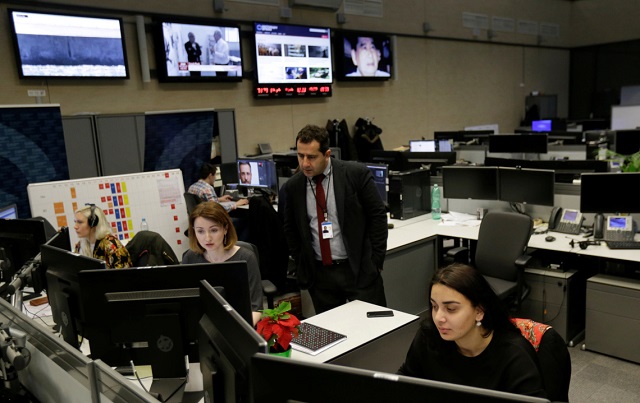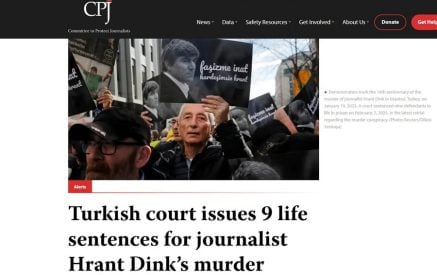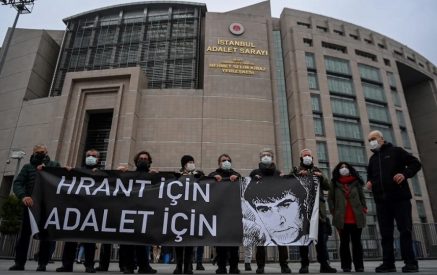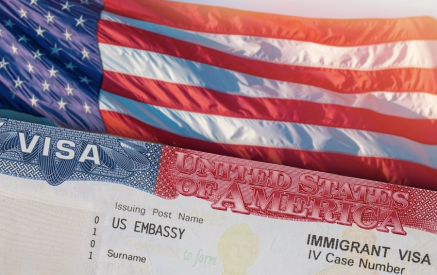New York, January 14, 2021 – Russian authorities should repeal the country’s foreign agents law to ensure that local and foreign news outlets can work freely, and in the meantime refrain from fining media organizations over alleged violations of the law, the Committee to Protect Journalists said today.
On January 12, Roskomnadzor, the country’s media regulator, issued four notices to media outlets run by the U.S. Congress-funded broadcaster Radio Free Europe/Radio Liberty, and four personal notices to Andrey Shary, the general director of the RFE/RL’s legal entity in Russia, as the person responsible for each outlet, according to a statement by the regulator, a report by RFE/RL, and news reports.
The notices allege that the four outlets—Radio Liberty, Current Time TV, and the regional news websites Sibir.Realii and Idel.Realii—failed to label their content as “foreign agent-produced,” a violation of Russia’s foreign agents law, according to news reports and the regulator’s statement.
The notices will next be reviewed by a judge, who will set a fine; companies can be fined up to 500,000 rubles (US$6,800), and individuals up to 50,000 rubles (US$679), according to the regulator’s statement. Individuals can also face up to five years in prison if charged and convicted with violating the foreign agents law, according to the Russian criminal code.
Read also
According to RFE/RL, the notices mark the first instances of Russian authorities pursuing such fines under the foreign agents law. Amendments to that law, passed in December 2020, expanded its provisions to cover individuals who work at outlets that receive foreign funding, and to require all media outlets to note the status of such individuals and organizations as “foreign agents” whenever they produce news or are mentioned in news articles, according to reports.
“Russian authorities regularly think up new tools and implementations to obstruct the flow of news and information, to the detriment of their own public,” said Gulnoza Said, CPJ’s Europe and Central Asia program coordinator. “Russian lawmakers should repeal the foreign agents law, and ensure that the country’s regulator is not used to censure journalists and harass and threaten media organizations.”
Authorities can continue to increase the fines if the outlets are deemed to remain out of compliance with the law, and Roskomnadzor has announced that it plans to file more notices to the RFE/RL companies, according to news reports.
Also in December 2020, authorities added Lyudmila Savitskaya and Sergei Markelov, freelance correspondents for RFE/RL’s Sever.Realii, and Denis Kamalyagin, chief editor of the independent regional newspaper Pskovskaya Gubernia and a contributor to RFE/RL’s Russian service, to the list of foreign agents, according to a report by RFE/RL. They also added the Czech Republic-based news agency Medium-Orient, the parent company of the news website Caucasus Times, according to a statement by the Russian ministry of justice, news reports, and Islam Tekushev, Medium-Orient’s project coordinator, who spoke with CPJ on the phone.
While the Caucasus Times publishes news and investigations focusing on the North and South Caucasus, Medium-Orient has no permanent presence or bureau in Russia, which Tekushev told CPJ he believed should make it exempt from the foreign agent law. He said he is going to appeal the decision in a Russian court.
“Moscow has demonstrated by its repressive threats exactly why Radio Liberty and Current Time are needed,” RFE/RL’s president, Ted Lipien, told CPJ in an email. “The Kremlin can make it harder for us to bring accurate information to Russians and others. But it can’t stop us from playing that essential role.”
CPJ emailed Roskomnadzor and the Russian Ministry of Justice for comment, but did not receive any responses.
Since 2017, the United States has required multiple foreign-funded news organizations to register under the U.S. Foreign Agent Registration Act, including the Russian-funded outlet RT, as CPJ has documented.
Committee to Protect Journalists
Caption: Employees of Current Time, a Russian-language media platform run by the U.S. Congress-funded broadcaster Radio Free Europe/Radio Liberty, are seen in Prague, Czech Republic, on February 7, 2017. Russian authorities recently issued noticies to Current Time and other RFE/RL outlets for allegedly violating the country’s foreign agents law. (Reuters/David W. Cerny)



























































